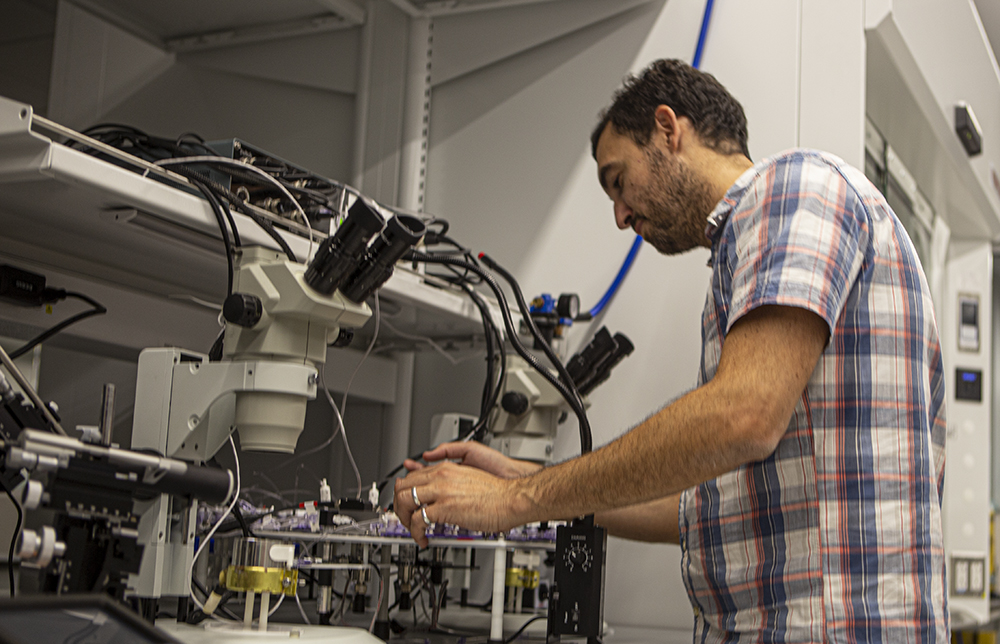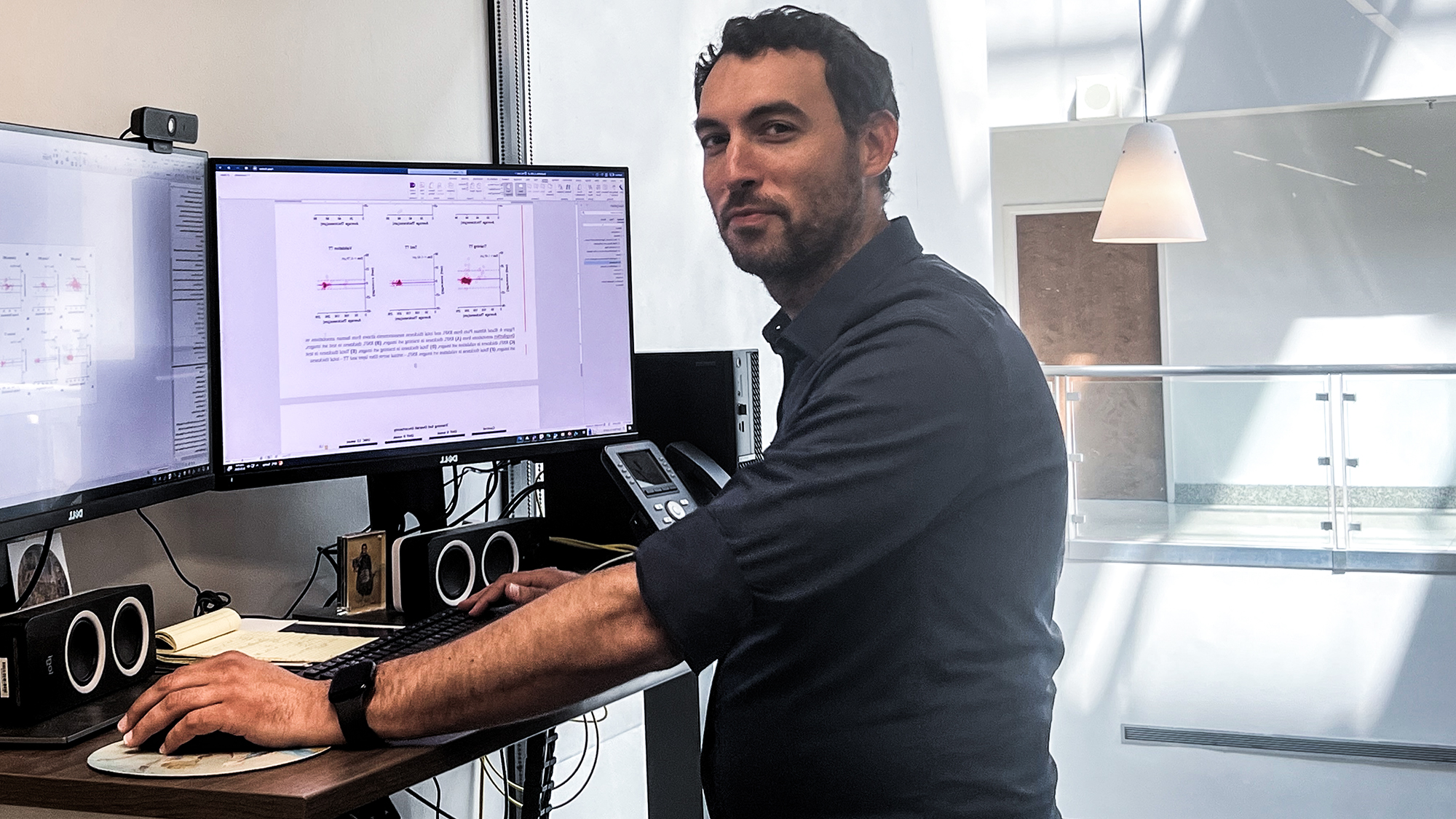Andrew J. Feola Research Group

The Problem
The Feola Research Group studies pathologies that affect vision from a women’s health perspective. Our main interests are to understand how age and menopause relate to developing glaucoma. Gender is not technically considered a risk factor for developing glaucoma, but 59 percent of those diagnosed with glaucoma are women. We know that menopause is a sex-specific risk factor for other pathologies, including cardiovascular disease, osteoarthritis, and bone health. More research needs to be done to determine whether and how menopause is a sex-specific risk factor for glaucoma.
The Approach
The overarching interest of the lab is to study disease pathology from a woman’s health perspective. We use multiple approaches to better understand risk factors, progression, and interventions of ocular pathologies. We focus on preclinical studies and clinical evidence that suggests a connection between menopause and glaucoma.
Current Research Projects
The Impact of Menopause on Vision in Experimental Glaucoma
- Sponsor(s): Veteran's Affairs
- Collaborator(s): Atlanta VA and Georgia Institute of Technology
- Publication(s): Exp Eye Res (2021); Exp Eye Res (2019); ARVO (2023
Glaucoma is the second leading cause of blindness worldwide and this disease causes a progressive irreversible loss of the axons carrying visual information from the retina to the brain. Menopause is a major life event for women affecting tissues all over the body including bone, heart, brain, and pelvic floor. Recent works have identified that early menopause or an estrogen deficiency increases the risk of developing glaucoma
Tools for Ophthalmology Research
- Sponsor(s): Emory Eye Center and Atlanta VA
- Collaborator(s): Atlanta VA and Georgia Institute of Technology
- Publication(s): Scientific Reports (2020) ARVO Annual Meeting (2019)
To improve consistency across laboratories and research projects it is important to have unbiased tools for data analysis. These tools not only improve repeatability but also decrease the time needed for each investigator to assess routine measurements. A goal of our lab to build tools for the scientific community using deep-learning and feature analysis.
Computational Modeling
- Sponsor(s): Georgia Institute of Technology, Atlanta VA, Emory Eye Center
- Collaborator(s): Georgia Institute of Technology, University of Alabama at Birmingham
- Publication(s): Biomech Model Mechanobiology (2020) IOVS (2022)


